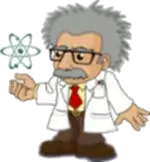Car uses
The car uses 91 liters of petrol to travel 700km. Determine the rate in liters per 100km.
Final Answer:

Tips for related online calculators
Need help calculating sum, simplifying, or multiplying fractions? Try our fraction calculator.
Check out our ratio calculator.
Tip: Our volume units converter will help you convert volume units.
Check out our ratio calculator.
Tip: Our volume units converter will help you convert volume units.
You need to know the following knowledge to solve this word math problem:
basic operations and conceptsnumbersUnits of physical quantitiesGrade of the word problem
Related math problems and questions:
- A bus 3
 A bus has a petrol tank in the shape of a cylinder. The cylinder is 125 cm long and has a diameter of 42 cm. (i) How much will a full tank of petrol cost at the rate of 5.23 per liter? (ii) If the bus uses petrol at 12.5 liters for every 50 km, how far ca
A bus has a petrol tank in the shape of a cylinder. The cylinder is 125 cm long and has a diameter of 42 cm. (i) How much will a full tank of petrol cost at the rate of 5.23 per liter? (ii) If the bus uses petrol at 12.5 liters for every 50 km, how far ca - Car consumption
 The car has passed 695 kilometers and consumed 32 liters of petrol. What is the consumption per 100 kilometers?
The car has passed 695 kilometers and consumed 32 liters of petrol. What is the consumption per 100 kilometers? - The car
 The car consumes 5 liters per 100 km and has 24 liters of gasoline in the tank. How much petrol remains in the tank after it rides for two and a half hours at a speed of 80 km/h?
The car consumes 5 liters per 100 km and has 24 liters of gasoline in the tank. How much petrol remains in the tank after it rides for two and a half hours at a speed of 80 km/h? - Car gasoline consumption
 The car manufacturer states that the car consumes an average of 6.8 liters of gasoline per 100 km. How many liters of petrol does it use for a 348 km journey?
The car manufacturer states that the car consumes an average of 6.8 liters of gasoline per 100 km. How many liters of petrol does it use for a 348 km journey? - Petrol as fuel
 A car can travel 480 miles on a full tank of petrol. The tank holds 60 liters. The fuel gauge shows there are 15 liters left in the tank. How many more miles can the car travel before it runs out of petrol?
A car can travel 480 miles on a full tank of petrol. The tank holds 60 liters. The fuel gauge shows there are 15 liters left in the tank. How many more miles can the car travel before it runs out of petrol? - A diesel car
 A diesel car costs $2599 more than an unleaded petrol car and travels an average of 25,000km per year. Diesel petrol has a consumption rate of 7.4L per 100km and costs $1.39 per liter. Unleaded gasoline has a consumption rate of 8.5L per 100km and costs $
A diesel car costs $2599 more than an unleaded petrol car and travels an average of 25,000km per year. Diesel petrol has a consumption rate of 7.4L per 100km and costs $1.39 per liter. Unleaded gasoline has a consumption rate of 8.5L per 100km and costs $ - Petrol consumption graph
 The car has a consumption of 6l / 100km. The entire tank contains 50 liters of gasoline. Build a graph of the function expressing the dependence of the amount of petrol in the tank on the kilometers traveled.
The car has a consumption of 6l / 100km. The entire tank contains 50 liters of gasoline. Build a graph of the function expressing the dependence of the amount of petrol in the tank on the kilometers traveled.
